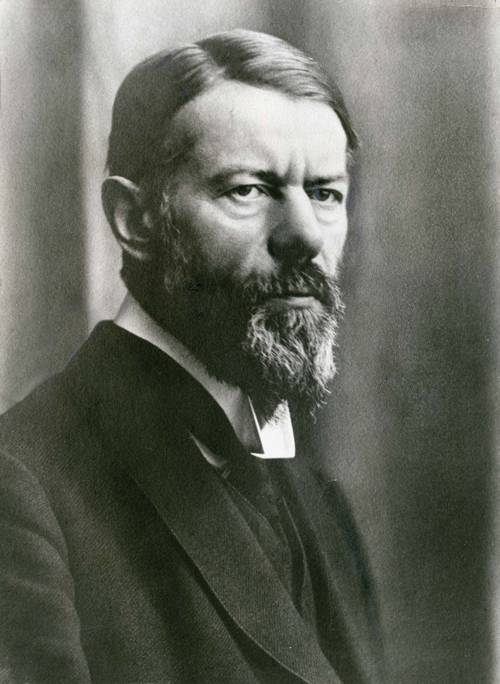
FAQ About Max Weber

Who was Max Weber?
Max Weber was a German sociologist, philosopher, and political economist, widely regarded as one of the founders of modern sociology. Born on April 21, 1864, in Erfurt, Prussia (now Germany), Weber is best known for his thesis on the 'Protestant Ethic and the Spirit of Capitalism' which explores the relationship between religion and the economic development of Western societies. He passed away on June 14, 1920, in Munich, Germany.

What is Max Weber's most influential work?
Max Weber’s most influential work is arguably 'The Protestant Ethic and the Spirit of Capitalism', published in 1905. In this work, Weber examines how values stemming from Protestantism, particularly Calvinism, encouraged a culture of hard work, discipline, and frugality that he argued was conducive to the growth of modern capitalism in the Western world.

What are some of Max Weber's key contributions to sociology?
Max Weber made numerous contributions to sociology, including:
Bureaucracy: He developed one of the first systematic studies on the structure and function of bureaucracy.
Authority Types: Weber distinguished between three types of authority: traditional, charismatic, and rational-legal.
Rationalization: He introduced the concept of rationalization as a driving force in modern society, describing the shift towards a focus on efficiency and logic in various spheres of life.

What is the 'Weberian theory of bureaucracy'?
The Weberian theory of bureaucracy is a framework for understanding modern organizational structures. Weber outlined an ideal-type of bureaucracy characterized by a hierarchical structure, consistent rules and regulations, division of labor, impersonality, and merit-based advancement. This model was proposed to increase efficiency and effectiveness in both public and private organizations.

How did Weber's work influence modern sociology?
Max Weber's work has had a profound impact on the field of sociology and social theory. His ideas about the role of culture in economic life, the nature of authority, and the importance of understanding social action from the perspective of individuals, have influenced countless sociologists and social scientists. His methodological approach, often associated with the concept of 'Verstehen' or interpretative understanding, emphasized the importance of context and subjective interpretation in social research.

What is 'The Protestant Ethic and the Spirit of Capitalism' about?
'The Protestant Ethic and the Spirit of Capitalism' is a treatise by Max Weber that examines the role of Protestant ethics, particularly Calvinist thought, in forming the mindset necessary for the development and support of capitalist economies. Weber argues that the Protestant values of discipline, hard work, and frugality played a crucial role in nurturing the economic framework that supported the rise of industrial capitalism in the West.

What are the three types of authority according to Max Weber?
Max Weber categorized authority into three distinct types:
Traditional Authority: This type is based on established customs and practices. Leaders often inherit their positions based on family lines or long-standing traditions.
Charismatic Authority: This type is derived from the personal appeal and extraordinary characteristics of a leader. Such authority rests on the devotion to the exceptional sanctity or heroism of an individual.
Rational-Legal Authority: This type is founded on established laws and procedures. Leaders derive their authority from legal rules and bureaucratic systems, often linked to modern state governance and institutions.

What is the concept of 'rationalization' in Weber's sociology?
In Max Weber's sociology, 'rationalization' refers to the process by which traditional modes of thinking are replaced by an emphasis on efficiency, calculability, and systematic reasoning. This concept underscores many of Weber's analyses of modernity, where societal changes are increasingly driven by regulatory, bureaucratic principles over time-honored values and beliefs.

Did Weber believe capitalism was inevitable?
Max Weber did not argue that capitalism was inevitable. Instead, he explored the historical and cultural conditions that contributed to the rise of capitalism in the West, notably the influence of Protestant ethics. While he emphasized the role of cultural factors, he did not suggest that capitalism was the only possible outcome of the historical process or that it would necessarily arise under any conditions.

How did Max Weber define 'social action'?
Max Weber defined 'social action' as an action carried out by an individual to which the actor attaches a subjective meaning. It is an action that takes into account the behavior and potential reactions of others, thus differentiating it from purely reactive or reflexive acts. Social action emphasizes the role of individual meanings and interpretations in social behavior.

What is 'Verstehen' in the context of Weber's work?
'Verstehen' is a German term meaning 'understanding'. In the context of Weber's work, it refers to a methodological approach in sociology that involves understanding social behavior from the perspective of those engaging in it. This approach advocates for empathy in social research, aiming to grasp the meanings, motives, and reasons behind individuals' actions within their social context.

Was Max Weber involved in politics?
While primarily known for his academic work, Max Weber was also involved in politics. He actively participated in political life during the early 20th century in Germany, particularly after World War I. He briefly served as an advisor to the German delegation at the Treaty of Versailles peace negotiations and was involved in drafting the Weimar Constitution. Despite his political activities, he never held a formal political office.

How did Weber view religion's role in society?
Max Weber viewed religion as a critical force in shaping societal structures and individual behavior. In his analysis, religion, particularly Protestantism, profoundly influenced economic actions and the development of Western capitalist societies. He studied various world religions to explore how religious beliefs and practices could impact economic behavior, social structures, and cultural values.

What was Weber’s approach to studying societies?
Max Weber advocated for a multifaceted approach to studying societies that combined historical analysis, comparative sociology, and an interpretive understanding of social actions. He emphasized using 'ideal types' as frameworks to analyze social phenomena and stressed the importance of interpreting the subjective meanings and intentions behind individual and collective actions.

What is Max Weber's legacy in sociological theory?
Max Weber's legacy in sociological theory is immense, influencing both the methodologies and substantive areas of inquiry within the field. His contributions to understanding authority, rationalization, and the interplay between religion and economics have profoundly shaped both classical and contemporary sociological thought. His work laid a foundation for future research in economic sociology, political sociology, and beyond.

Why is Weber considered a founder of sociology?
Max Weber is considered a founder of sociology due to his pioneering theoretical and methodological contributions. Alongside contemporaries like Emile Durkheim and Karl Marx, he helped establish sociology as a distinct academic discipline focused on the systemic analysis of societies. His work provided key insights into the structures of authority, the impact of religion on economic life, and the processes of rationalization that define modernity.

Did Weber see capitalism as purely economic or cultural too?
Max Weber viewed capitalism as both an economic system and a cultural phenomenon. He argued that the development of modern capitalism was not just a result of economic factors but was also deeply intertwined with cultural and religious values, particularly those associated with Protestantism. This perspective is most famously articulated in his work 'The Protestant Ethic and the Spirit of Capitalism'.

How did Max Weber influence political sociology?
Max Weber significantly influenced political sociology through his analysis of authority, bureaucracy, and the state. His typology of authority—traditional, charismatic, and rational-legal—provides a framework for understanding different modes of governance and political power. Additionally, his insights into bureaucratic organization have been foundational in studying the structure and operation of modern states and institutions.

What was Weber's perspective on the role of values in social science?
Max Weber emphasized the importance of values in social science but also advocated for a distinction between facts and values in research. While recognizing that values influence the choice of research topics and the interpretation of findings, he argued for 'value-free' or objective social science, where researchers strive to separate personal beliefs from their analytical work to better understand social phenomena realistically.
